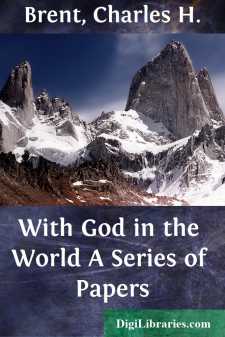Categories
- Antiques & Collectibles 13
- Architecture 36
- Art 48
- Bibles 22
- Biography & Autobiography 813
- Body, Mind & Spirit 142
- Business & Economics 28
- Children's Books 15
- Children's Fiction 12
- Computers 4
- Cooking 94
- Crafts & Hobbies 4
- Drama 346
- Education 46
- Family & Relationships 57
- Fiction 11828
- Games 19
- Gardening 17
- Health & Fitness 34
- History 1377
- House & Home 1
- Humor 147
- Juvenile Fiction 1873
- Juvenile Nonfiction 202
- Language Arts & Disciplines 88
- Law 16
- Literary Collections 686
- Literary Criticism 179
- Mathematics 13
- Medical 41
- Music 40
- Nature 179
- Non-Classifiable 1768
- Performing Arts 7
- Periodicals 1453
- Philosophy 64
- Photography 2
- Poetry 896
- Political Science 203
- Psychology 42
- Reference 154
- Religion 513
- Science 126
- Self-Help 84
- Social Science 81
- Sports & Recreation 34
- Study Aids 3
- Technology & Engineering 59
- Transportation 23
- Travel 463
- True Crime 29
With God in the World A Series of Papers
by: Charles H. Brent
Description:
Excerpt
Chapter I
The Universal Art
It is productive of much mischief to try to make people believe that the life of prayer is easy. In reality there is nothing quite so difficult as strong prayer, nothing so worthy of the attention and the exercise of all the fine parts of a great manhood. On the other hand there is no man who is not equal to the task. So splendid has this human nature of ours become through the Incarnation that it can bear any strain and meet any demand that God sees fit to put upon it. Some duties are individual and special, and there is exemption from them for the many, but there is never any absolution from a duty for which a man has a capacity. There is one universal society, the Church, for which all are eligible and with which all are bound to unite; there is one universal book, the Bible, which all can understand and which it is the duty of all to read; there is one universal art, prayer, in which all may become well skilled and to the acquirement of which all must bend their energies.
Active or dormant, the instinct of prayer abides, a faithful tenant, in every soul. The peasants who went to the Incarnate One and said "Lord, teach us to pray," were representative of a whole race, a race which feels stirring within its breast a capacity for prayer, but whose power to pray falls far short of the desire. The instinct to pray may be undeveloped, or paralyzed by violence, or it may lie bed-ridden in the soul through long neglect; but even so, no benumbed faculty is more readily roused to life and nerved to action than that of prayer. The faculty is there; no one is without it. Whether it expands, and how, is only a question of the will of the person concerned.
It is good to be quite honest and frank. Is it not so that the real thing that makes men dumb towards God is, in the first instance, at any rate, not intellectual doubt about the efficacy of prayer but the difficulty of it allâthe rebellion of the flesh, the strain upon the attention, the claim upon the time? Are not the common stumbling-blocks in the way of prayer incidental rather than essential? Do men give up prayer because they are conscientiously convinced that they would do violence to their noble nature if they were to persist in its exercise? Nothing can release a man from the duty of praying but the profound conviction that it would be a sin for him to continue to pray. And it might be safely added that any one thus momentarily caught in the toils of pure reason, any one endowed with such a delicate conscience as would lead to this, must eventually turn again with joy to the neglected task. Even the great agnostic scientist, Tyndall, who, of course, had a very limited view of what prayer was capable of accomplishing, and was in a position to perceive only one dim ray of its beautyâits subjective refining influence upon the petitionerâeven such an one declares that "prayer in its purer forms hints at disciplines which few of us can neglect without moral loss."
How to perfect the talent of prayerâthat is the question....


